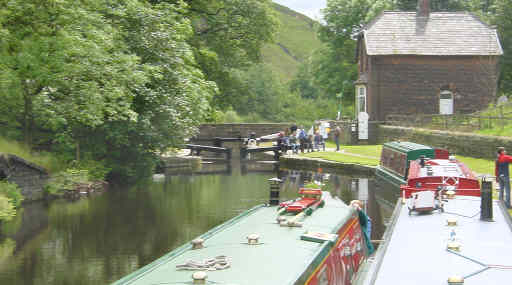British Waterways should not be expected to bear most of the financial risk for the restoration of canals, says a further report from the EFRA committee.
The House of Commons Environment, Food and Rural Affairs Committee (EFRA) has today published a follow-up report on British Waterways which concludes that if Government wants to obtain the public benefits of canal investment, it should bear the costs.
The report notes that it is estimated that in the first seven years after public investment in waterside regeneration, there are about £6 worth of direct economic benefits for every pound of public money invested. It also notes that these are usually public benefits rather than financial benefits to BW.
The Committee says that canal restoration can produce knock-on benefits such as more jobs and visitor income. But the risks have to be spread more widely among the public sector instead of just BW, which often gets little immediate direct benefit from such work.
The report noted the improvements in the relationship between BW and DEFRA, which had been adversely commented upon in EFRA's original report on BW in 2007. The Committee welcomes the setting up the Interdepartmental Working Group which could lead to a more flexible approach to waterway funding.
The Committee's inquiry was prompted by BW’s decision in February this year to withdraw from the partnership to restore the Cotswold Canals.
The Committee concludes that BW should have consulted its Cotswold Canals restoration partners about its withdrawal earlier, so that they could have had a chance to see if alternative funding was available.
The Committee is "unconvinced" of BW's need to spend up to £600,000 on a report by consultants on its future structure when it is by its own admission short of money. It seems unlikely that there wasn't the expertise within BW, DEFRA or the public sector to conduct the study at lower cost, something which BW should now explain.
British Waterways’ chairman Tony Hales welcomes the report as "an extremely useful contribution to the debate". He adds that the committee's work could only help to enhance the prospect for future waterway restorations.
BW disputes the amount it is paying to consultants, giving a figure of£350,000. The results from this study, due this month, are expected to "set the framework for a debate on the longer term strategy for the waterways in the period to 2020".
(The committee's full report can be read here.)
SOW's View
Will Chapman writes:
The opinion by the EFRA Select Committee that BW should not be expected to carry the risks of canal restoration is clearly good news for BW and goes some way to justify their decision to pull out of the Cotswold Restoration.
BW has a statutory responsibility to keep existing waterways open and safe for navigation. As that is a task that needs £125 million to do properly and as they only have £100 million to do the job it is clear that there is no money to spend on non-navigational matters. This particularly when they have the Mon & Brec to repair and the £10 million costs of last years floods to cover.
EFRA also questions whether it is sound management to spend several hundred thousand on the KPMG structure review. As useful as that study might be, I would agree but I was under the impression that BW initiated the study because they were asked to do so by the former Waterways Minister. If that is the case, should not Government pick up that tab (as indeed they should the cost of containing last year's floods)?
All in all, this announcement is encouraging. It demonstrates a growing realisation that the waterways have a profound impact on the agendas of many other Government departments and we can only hope that the Ministers responsible will recognise this by supporting the Interdepartmental Working Group - another recommendation of EFRA - that has been set up by Waterways Minister Shaw to garner support for the waterways from all its beneficiaries.
 In June the Environment Minister Phil Woolas and local MPs met with EA and it was agreed to put the proposals on hold until it has completed "a full review of waterways staff roles and responsibilities, and terms and conditions".
In June the Environment Minister Phil Woolas and local MPs met with EA and it was agreed to put the proposals on hold until it has completed "a full review of waterways staff roles and responsibilities, and terms and conditions". 




